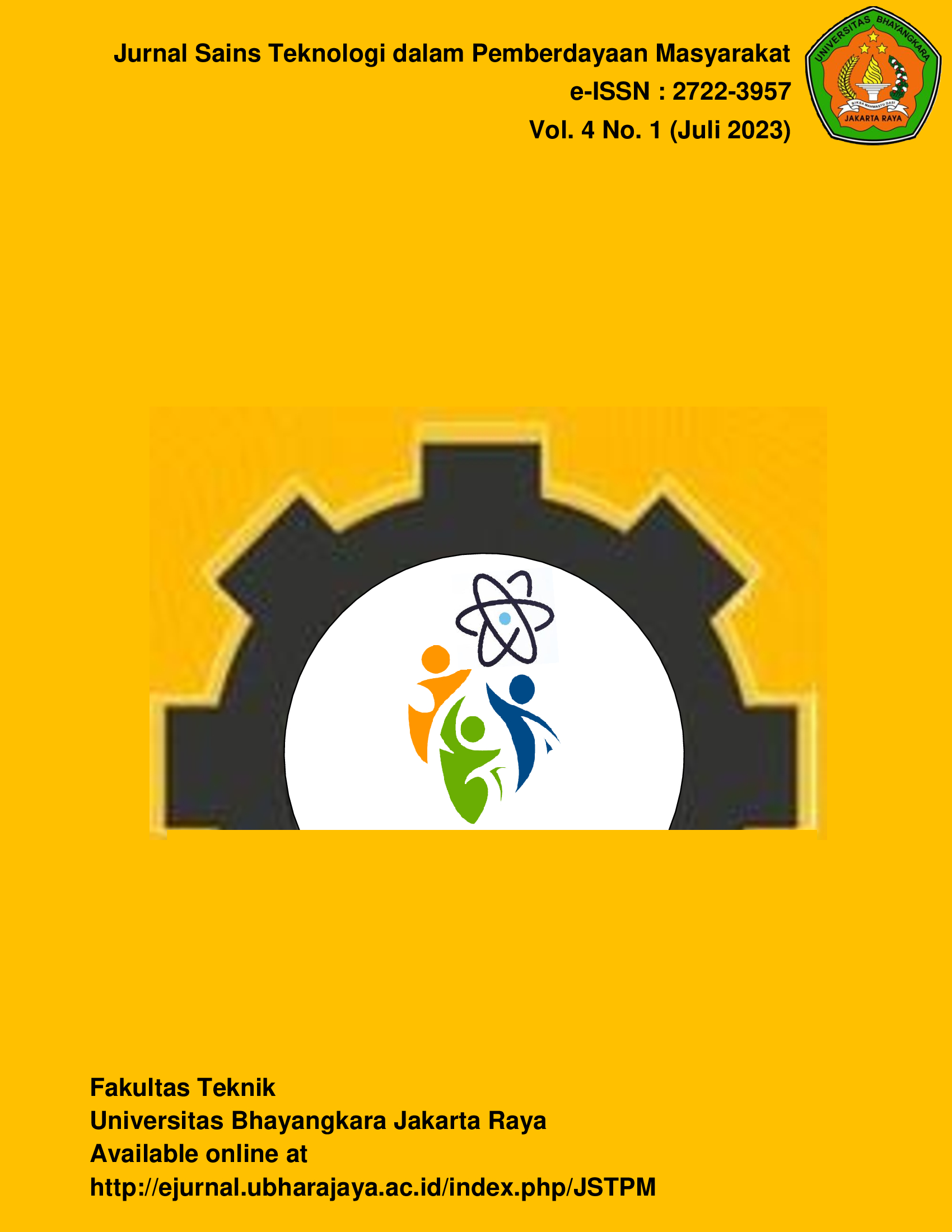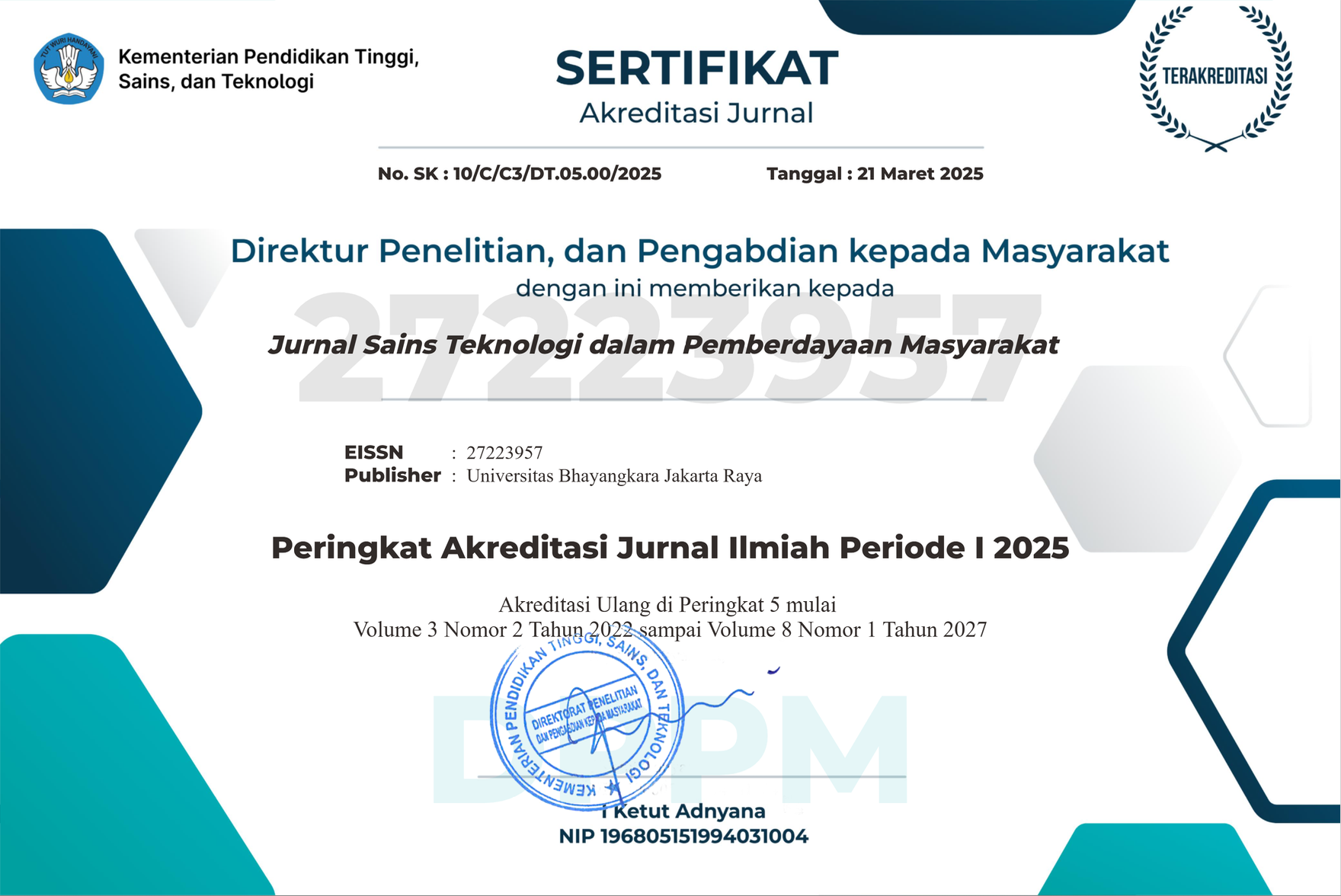Manajemen Lingkungan dan Pengolahan Sampah Rumah Tangga dan Minyak Jelantah menjadi Nilai Ekonomi di Kelurahan Kalibaru
DOI:
https://doi.org/10.31599/r5jg3x97Keywords:
Environment, waste processing, pollutionAbstract
Kalibaru Village is a lowland area which has relatively hot temperatures located in Bekasi City. Sub-optimal waste management in Kalibaru Village can have a negative impact and various environmental problems such as flooding, worsening environmental sanitation, decreasing organic content in the environment, and accelerating global warming. In addition to public awareness that is still low not to throw away used cooking oil resulting from food processing, it also has a great potential to pollute the environment. But not only awareness is needed by the community but also programs that can overcome this pollution by converting household waste and used cooking oil into economic value. Seeing the problems in Kalibaru Village in environmental management, a work program can be developed that refers to the waste bank program. Of course, to realize this, it is necessary to have cooperation between universities and the community, it is hoped that this work program can create a cleaner, more beautiful and healthier environment. The stages that will be carried out related to the implementation of Community Service include the Observation & Focus Group Discussion stages (Phase 1). At this stage, a direct observation is carried out to analyze the situation and conditions of partners. Evaluation of advanced programs that are in line with waste management through waste banks and waste cooking oil processing has economic value. Stage 2, namely developing a waste bank program, aims to change people's behavior in handling waste and used cooking oil (reduce reuse recycle concept). By separating the waste, this waste has economic value. Stage 3, then converting waste and used cooking oil into having economic value and turning waste into input for environmental improvement and developing the scalability of waste banks to be able to manage waste even better and be able to sustain it.


















